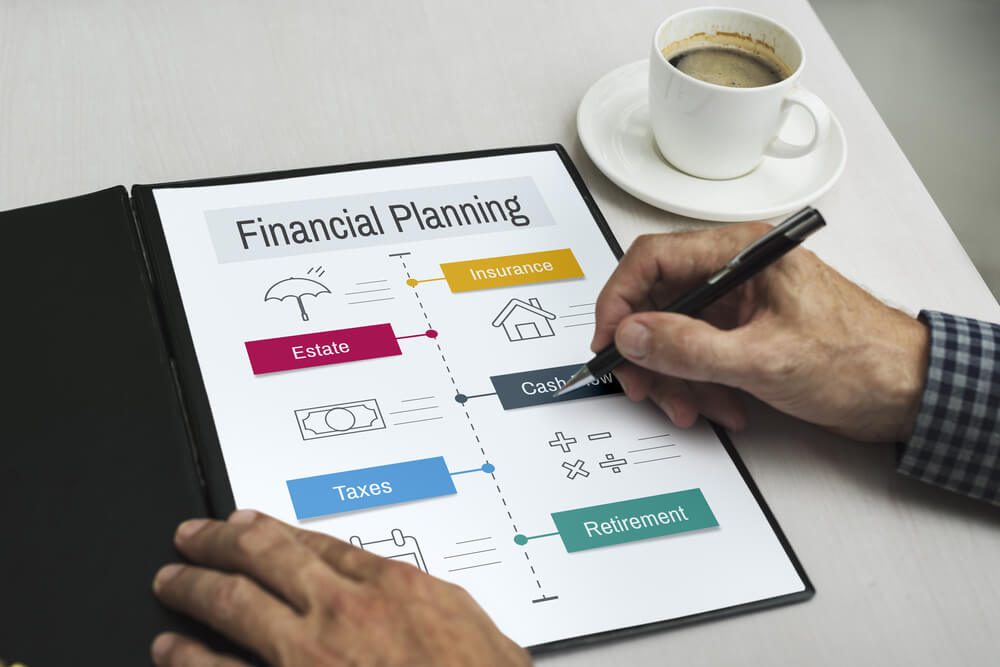
6 Reasons Why You Need a Monthly Financial Planner
Managing your money can feel overwhelming, especially when you’re juggling everyday expenses alongside flex loans or other borrowing options. Without a clear plan, it’s easy to lose track of where your money goes.
A monthly financial planner gives you structure. It helps you see the full picture of your finances so you can make informed decisions, avoid overspending, and stay consistent with payments.
For many people across Tennessee, managing monthly expenses can feel unpredictable. Between rising living costs, variable income schedules, and unexpected emergencies, having a clear financial system in place matters more than ever. A monthly financial planner helps Tennessee residents stay organized, plan ahead, and make confident financial decisions throughout the year.
What Is a Monthly Financial Planner?
A monthly financial planner is a tool used to track income, expenses, savings, and loan payments over a 30-day period, helping individuals create a budget and stay in control of their finances.
What Are Flex Loans?
In Tennessee, flex loans are often used to manage short-term cash needs while maintaining control over monthly expenses. Because they function as line of credit loans, careful planning is important to avoid unnecessary borrowing and keep payments manageable.
- No fixed payments – Pay back what you use.
- No lump sum withdrawal required – Borrow only what you need.
- Credit-building potential – Make timely payments to improve your credit score.
Looking for fast cash? Apply for a flex loan today!
Applying for a line of credit loan is easy, especially with Tennessee Title Loans Inc., as we will only require:
- Driver’s license or State Issued I.D.
- Your vehicle for inspection
- Your lien-free auto-title
- Proof of Income
You can keep using your car even during the repayment period. People with bad credit are welcome to apply and build their low scores. So, don't wait and get started today!
Hopefully, the above mentioned is enough to get motivated to create your monthly financial planner, stick to it month-to-month, and become more optimistic about your future financial well-being.

Personal income and expenses can be a challenging thing to manage. Without any kind of tracking system, you might not be able to ultimately identify how you spend your money. Prioritizing efficiency and accuracy in handling cash should be a priority, especially in these trying times.
Even if you don’t have a good income source, using a financial planner is still a very popular recommendation. If you found yourself struggling to get your finances together, you might want to make a Monthly Financial Planner.
Why Use A Monthly Financial Planner?
A monthly financial planner is a tool that helps individuals and families:
- Track income and expenses
- Create a budget for daily and monthly needs
- Plan for loan payments, savings, and investments
This simple habit ensures that you’re spending within your means, managing debt effectively, and saving for the future.
6 Benefits of Using a Monthly Financial Planner
1. You Know Where Your Money Goes
Many people earn a steady income but still struggle financially because they don’t track spending. A planner breaks down exactly how much goes toward housing, food, transportation, and other essentials. Once everything is visible, adjusting your budget becomes much easier.
2. It Helps You Focus on Both Short-Term and Long-Term Goals
Monthly planning allows you to prepare for near-term expenses while still working toward long-term goals like savings or debt reduction. Instead of choosing one over the other, you can allocate funds in a way that keeps both moving forward.
3. Encourages Consistent Saving
Saving money often gets overlooked when expenses feel tight. A planner makes savings part of your routine rather than an afterthought. Even small, consistent contributions add up over time and provide a cushion for unexpected costs.
4. Improves Awareness of Spending Limits
Creating a budget helps you understand your purchasing power. This is especially important if you rely on credit. When you know your limits in advance, you’re less likely to overspend or depend on borrowed money for everyday expenses.

5. Identifying Bad Habits
Tracking expenses over a full month often reveals patterns you didn’t notice before. Small purchases, frequent convenience spending, or unnecessary subscriptions can quietly drain your income. Once identified, these habits are easier to reduce or eliminate.
If cutting back feels difficult, reviewing strategies for limiting spending in Tennessee and creating a budget guide for smarter financial choices
6. Keeps Loan Payments Organized
A monthly financial planner makes it easier to manage flex loans responsibly. When payment dates and balances are clearly outlined, you’re less likely to miss due dates or borrow more than necessary. Staying organized helps prevent debt from piling up.
Manage Your Flex Loans With A Monthly Financial Planner
Using a monthly financial planner can help you:
- Create a realistic budget
- Track flex loan withdrawals and payments
- Reduce unnecessary expenses
- Build better financial habits over time
Planning doesn’t require perfection, just consistency. With a clear monthly overview, managing flex loans becomes more predictable and far less stressful.
Staying financially organized is especially important for households across Tennessee, where monthly expenses and income can fluctuate. A monthly financial planner helps bring consistency to your finances, making it easier to manage flex loans, plan ahead, and avoid unnecessary stress.
Note: The content provided in this article is only for informational purposes, and you should contact your financial advisor about your specific financial situation.